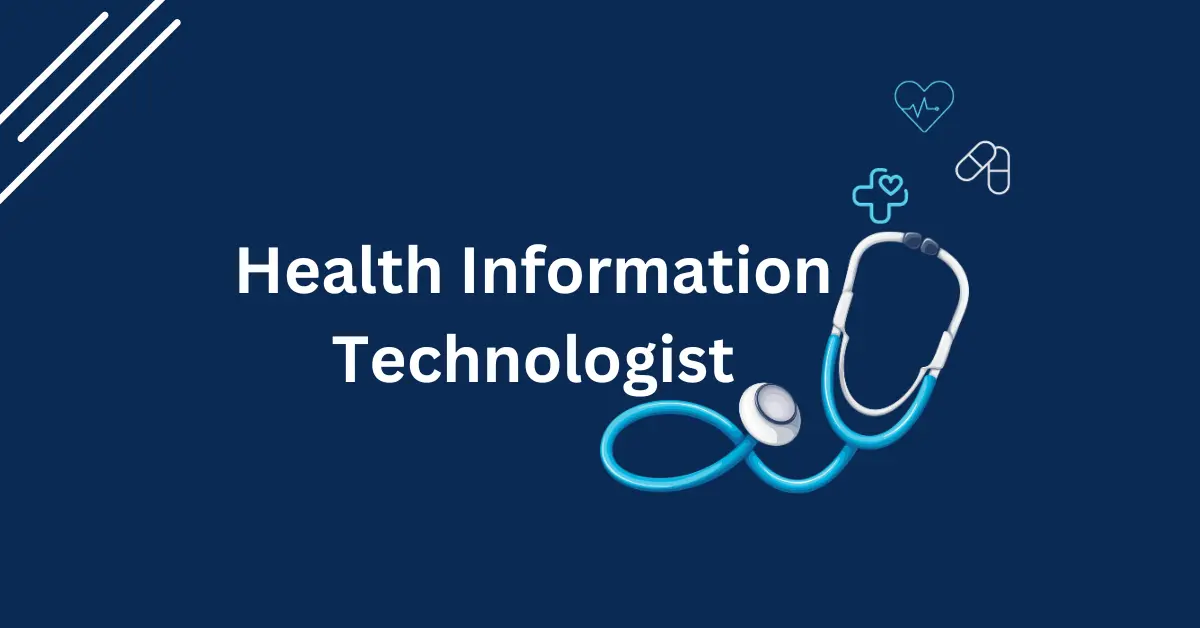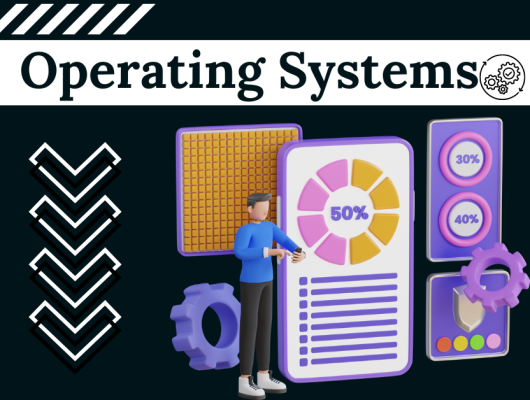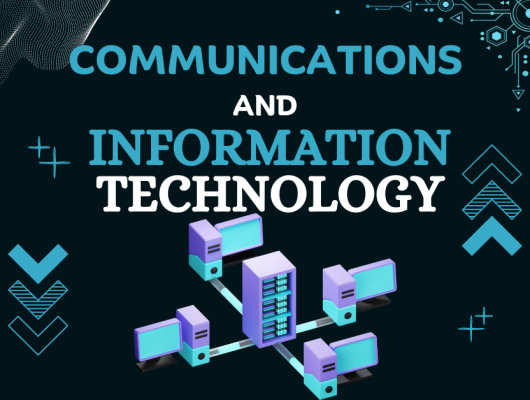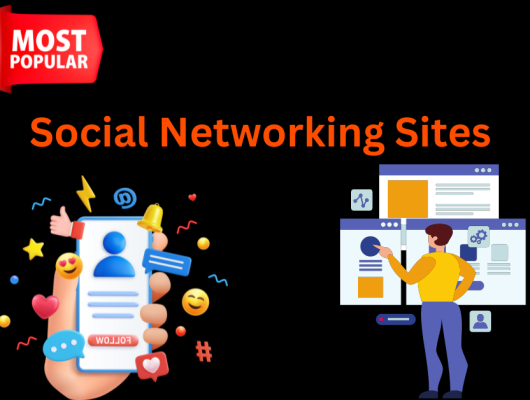As a health information technologist, you will be responsible for handling the technical aspects of managing patient health information. Your task involves creating, implementing, and maintaining electronic health record databases. Ensuring secure access to this information is crucial, as your employer relies on you to store and safeguard the data. Health Tech Unveiled: Revolutionizing Medicine with Cutting-Edge Innovations and AI-driven Solutions. Explore Electronic Health Records, Telemedicine, and Advanced Medical Devices Shaping the Future of Healthcare.
Healthcare technology refers to the application of advanced tools, software, and systems in the medical field. It encompasses electronic health records, telemedicine, medical devices, AI, and innovative treatments.
What are a health information technologist’s main duties?
Health information technologists, as part of their roles, specialize in managing, protecting, and maintaining the quality of patient data. They are also adept at utilizing Data analytics techniques to conduct various studies and analyses with the purpose of improving the way patient information is stored and accessed. Their involvement in improving the overall quality of health information technologies is crucial for the efficient functioning of healthcare systems, whether in smaller facilities with limited resources or larger institutions with diverse teams.
What is a health information technologist’s work environment?
The rapid expansion of electronic systems has transformed the way health information technologists manage and secure medical records. These experts play a crucial role in various healthcare settings such as clinics, hospitals, nursing homes, dental offices, chiropractic offices, and similar facilities. Collaborating with software companies, they safeguard sensitive patient information and ensure the seamless operation of digital platforms. Working in shifts, including nights, weekends, and holidays, health information technologists are integral members of the design team, offering essential insights to consultants.
How to Become a Health Information Technician
In the competitive landscape, health information technologists with the RHIT credential are highly sought after by employers. While some prefer candidates with a bachelor’s degree, the completion of a recognized certificate or associate degree program is often sufficient. AHIMA-accepted institutions play a pivotal role in the journey of RHIT candidates, ensuring they receive the necessary training and knowledge to excel in the dynamic field of health information technology.
What are the educational requirements for health information technologists?
Health information technologists play a crucial role in the healthcare sector, leveraging their expertise gained through a bachelor’s degree in health information management or a similar field. Students enrolled in a relevant bachelor’s program for four years are equipped to tackle challenges in healthcare. These individuals are eligible to evaluate and improve health information management systems, utilizing their skills to gather and analyze data. By integrating advanced computer software, they contribute to enhancing medical infrastructures and enforcing health policy methods.
What training and certifications do health information technologists need?
Upon graduating with a bachelor’s degree in health information management, it is important for aspiring health information technologists to earn various health IT certifications. This includes the Registered Health Information Administrator certification, which certifies individuals as health information administrators. Passing the certification exam is a requirement to attain this well-recognized certification. Additionally, acquiring the Certified Professional Coder certification is essential and requires completing the Medical Coding Career Accelerator Program.
What are the main skills of a health information technologist?
Health information technologists play a crucial role in the healthcare sector by leveraging their IT expertise. Their knowledge encompasses the latest health technology developments, allowing them to understand and navigate complex patient information software systems. Effective communication skills are vital as they work alongside medical staff and insurance professionals, constantly communicating with all parties to ensure that the software systems are used efficiently and effectively. In fast-paced environments where quick solutions are imperative, their problem-solving skills shine.
Average salary and job outlook for health information technologists
Health information technologists play a crucial role in the healthcare industry, where knowledge of both healthcare and IT is vital. Possessing diverse and important skills, they must stay up to date with the latest health technology developments. This includes the ability to understand and navigate complex patient information software systems. Effective communication skills are essential as they work alongside medical staff and insurance professionals, constantly communicating with all parties to ensure that software systems are used effectively and efficiently.
History of Health Information Technicians
In the 1990s, the landscape of healthcare underwent a significant transformation with the rise of digital medical records. This marked the beginning of a new era, as President George W. Bush recognized the necessary shift towards electronic systems and established the Office of the National Coordinator for Health Information Technology. In response to the growing need for standardized health information management, this agency aimed to protect, organize, and streamline medical records. The role of health information technologists became crucial as they were tasked with the responsibility to design, implement, and test advanced technology systems, overcoming bottlenecks in medical information exchanges.
Key Soft Skills for Health Information Technicians
Health information technologists play an essential role in busy healthcare facilities, where their primary role involves handling patient records. They must communicate effectively with healthcare specialists, discussing records with empathy and respect. Interpersonal skills are crucial as they verify information to ensure accurate and confidential medical records. Their strong ethics drive them to commit to protecting patients’ privacy and comply with medical records laws and regulations.
Key Hard Skills for Health Information Technicians
Health information technologists, also known as health information technicians, play a crucial role in the healthcare industry. Their primary responsibilities include using computers to store, organize, and retrieve medical records. These specialists are well-versed in the latest technology and are certified to manage and update electronic systems for efficient handling of patient records. To uphold the HIPAA laws and best practices, employers often require these professionals to be knowledgeable about handling, storing, and sharing medical records securely.
Professional Organizations for Health Information Technicians
Founded in 1928, the American Health Information Management Association (AHIMA) has deep roots as a leader in the health informatics industry. With a steadfast commitment to improving medical recordkeeping, AHIMA offers the esteemed RHIT certification, one of the top credentials for health information technicians. The organization’s dedication to tracing the evolution of the industry since its inception makes AHIMA a cornerstone for those aspiring to excel as health information technologists.
Similar Specializations and Career Paths
Health information technologists, also known as health information technicians, can pursue diverse career paths by gaining on-the-job experience and pursuing additional certifications or degrees. Some potential careers include becoming an IT Architect, where these information technology architects manage organizations’ IT infrastructure, ensuring the smooth operation of digital health records systems. They play a crucial role in maintaining and upgrading these systems to guarantee ease of use and uphold the confidentiality of patients’ health information. Health information technologists collaborate with professionals such as software engineers and network administrators to enhance systems and provide technical guidance.
Conclusion
In conclusion, a health information technologist plays a crucial role in managing, securing, and optimizing healthcare data. Their expertise ensures efficient information flow, enhances patient care, and contributes to the overall advancement of the healthcare industry.
Common Questions of Health
What is the fastest growing healthcare technology?
1. New AI Applications and Concerns of the Medical Community. One of the fastest growing trends in health information technology: Recent years have seen the rapid development of artificial intelligence (AI) technology, and the trend will continue in 2024.
Who has the best healthcare technology in the world?
Switzerland, along with the #1 overall ranking, placed first for Quality. The U.S. ranked first for Choice along with Science & Technology, while Germany ranked highest for Fiscal Sustainability. Notably, the U.S. ranked second-to-last in Fiscal Sustainability, ahead of only Japan.
What health information technology is most used in patient care?
PACS and VNAs are the two most popular tools in use by health care professionals to process and store patients’ medical images. These systems are an important category of health information technology as they integrate radiology into the regular workflow of a clinic.
How is AI used in healthcare?
In fact, AI is already being used in healthcare to help diagnose patients, for drug “discovery and development,” to improve physician-patient communication, and to transcribe medical documents.







